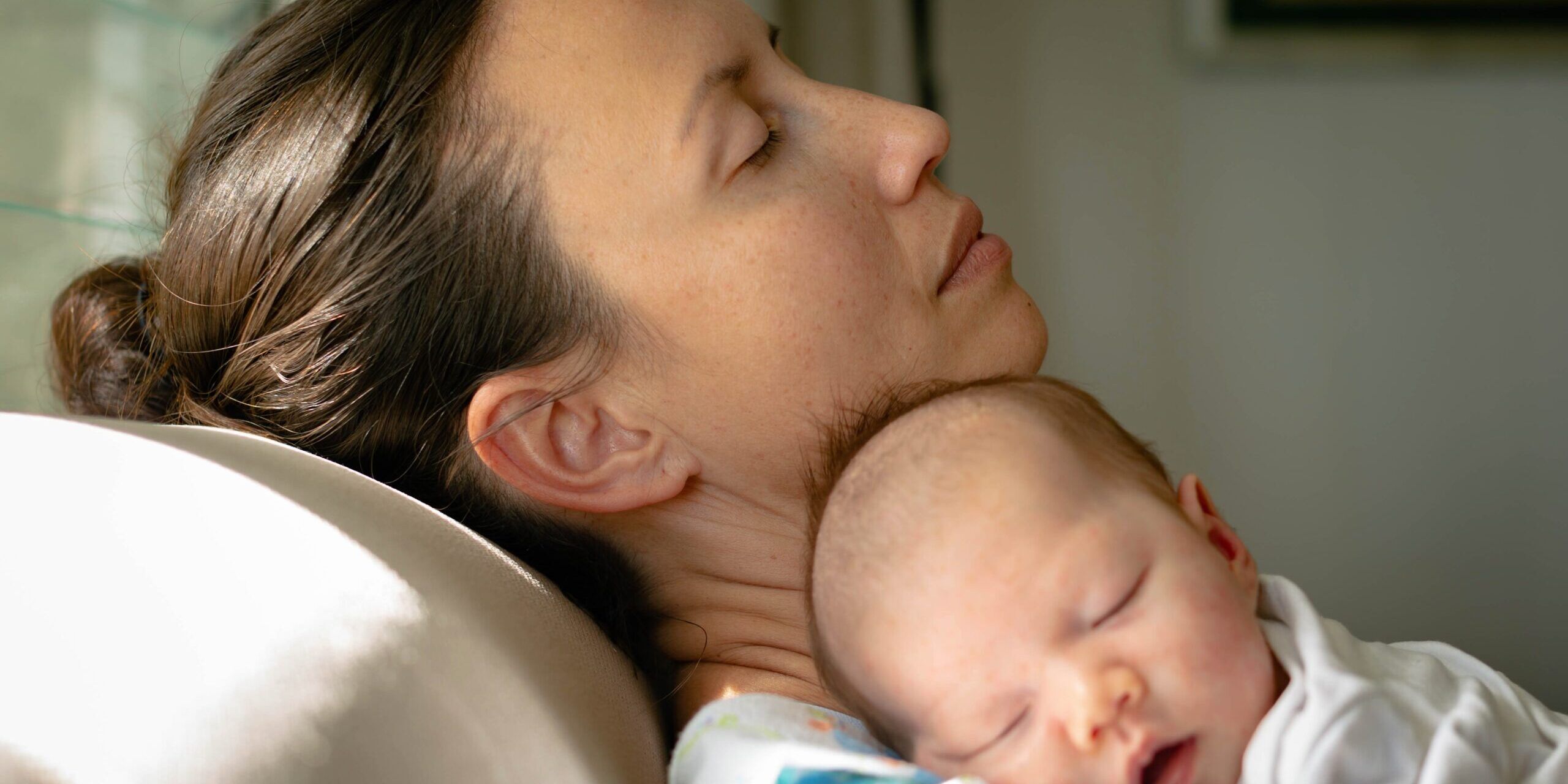Supportive Postpartum Care
Sydney Sprouse
Supportive Postpartum Care
by Sydney Sprouse
This post was reviewed for accuracy by Dr. Debbie Rice, ND, MPH.
In the days and weeks following childbirth, a woman’s body goes through enormous change. In this “fourth trimester” she needs support from her friends, family, and providers to ensure she receives the postpartum care necessary for her to thrive.
What is the Postpartum Period?
The term “postpartum” refers to the period of time after giving birth. This is the time for women to focus on recovering physically from labor and bonding with their newborn. For some, the postpartum period is full of joy and excitement. Other women may experience more difficulty during the adjustment.

Hormone Changes Postpartum and Postpartum Symptoms
Postpartum women will experience dramatic changes in their body and may report symptoms in the weeks and months following childbirth. Many of these symptoms are the result of intense shifts in hormone levels following delivery.
Fatigue
Postpartum fatigue may be due to poor-quality sleep. Sleep is interrupted when the newborn wakes and cries out for food or comfort. Fatigue and tiredness affect many women postpartum and will likely subside once normal sleep routines are established for mother and baby.
Afterpains
It can take up to six weeks for the uterus to return to its normal size after giving birth. Postpartum women may experience cramping and soreness as the uterus shrinks back down. These cramps are sometimes referred to as afterpains. Oxytocin, the hormone that tells the uterus to begin contracting during labor, is responsible for afterpains post-delivery.
Tender Breasts
After giving birth, women experience changes in their breasts in preparation for breastmilk. Whether the mother wishes to breastfeed or not, she will experience her “milk coming in”.
The production of breast milk is governed by prolactin and oxytocin. Prolactin is present throughout pregnancy and spurs the growth of mammary tissue to prepare for milk production (though progesterone and estrogen levels during pregnancy prevent prolactin from triggering milk secretion). Immediately after delivery, progesterone and estrogen levels drop and milk secretion begins.
A woman’s breast tissue expands to accommodate her milk coming in. This can cause some discomfort. Breast tenderness and soreness is a common complaint postpartum. The sensation of fullness in the breast may contribute to soreness but will be alleviated once regular breastfeeding is established.
Hair Loss
Another change women may experience postpartum is hair loss. Postpartum hair loss usually happens a few months after delivery and can last up to six months.
High estrogen levels during the last trimester prevent the release of hair from the hair follicle, so women shed less hair while they are pregnant. Many women even report increased fullness and thickness in their hair during pregnancy.
When estrogen levels drop following childbirth, hair follicles resume their normal shedding cycles. Much of the hair that was not shed during pregnancy is released suddenly, making for a noticeable increase in hair loss postpartum.

Supporting Friends, Family, and Patients Postpartum
New parents, and especially new mothers, will find that caring for a baby is a lot of work. A dependable support system can make the transition into postpartum more manageable for the whole family.
Postpartum support can look like a lot of different things. Friends and family are in a unique position to offer practical support in the home. Practical support for women with new babies is welcomed and can sometimes be even more helpful than gifts during this time.
Examples of practical support during the postpartum period are:
- delivering meals
- tidying around the home
- picking up older siblings for playdates
- sitting with the new baby while the mother bathes and naps
Never underestimate the power of offering help. These seemingly small acts of service can alleviate stress and burdens for postpartum women. Offering service now also lets new mothers know that they have a network of support around them that is there if other needs arise.
Healthcare providers can offer another kind of support to postpartum women. Ideally, plans for postpartum care of the mother should be made prior to the baby’s arrival. According to the American College of Obstetricians and Gynecologists, postpartum care should be a continuous endeavor. Pregnant and postpartum women should discuss their plans for future pregnancies and their long-term reproductive care with their providers. At postpartum visits, patients can discuss options for contraception and future well-woman visits.
It is recommended that all mothers see their provider for an initial assessment within the first three weeks postpartum. By 12 weeks postpartum, new mothers should have a comprehensive exam. This visit should include evaluation of her physical, social, and psychological well-being.

Health and Well-Being Postpartum
While the hormone fluctuations subside, and life shifts back to the normal routine, there are things postpartum women can do to maintain their health and well-being.
To promote healing, some women may benefit from physical therapy after giving birth. Pelvic floor physical therapy may help retrain strained muscle groups after delivery and alleviate some of the more uncomfortable symptoms for postpartum women such as urinary or fecal incontinence. It’s best practice for providers to evaluate their patients and assess whether they would benefit from pelvic floor physical therapy.
Exercise (after sufficient healing time) can be hugely beneficial for new mothers. Moving the body can support mood and sense of well-being and may reduce stress during the postpartum period. Regular exercise is also supportive for women experiencing postpartum depression (PPD). Women should not feel pressure to resume exercise until they feel ready, and should make the decision about how and when to exercise with their provider.

PPD is a concern for women in the months following delivery. Generally, it is normal to experience some mood swings following the birth of a child. But prolonged periods of sadness, detachment, excessive crying, obsessive thoughts, and loss of interest in life are cause for concern.
If you, a loved one, or a patient is experiencing the symptoms of PPD, there is help available. Providers can connect their patients struggling with postpartum mood disorders with resources like counseling and medication if necessary. There is hope for recovery from PPD with proper care.
Thriving Postpartum
The postpartum period is full of physical and emotional change for new mothers. Practical support and thorough medical care following delivery can set women up for success as they tackle the ups and downs of postpartum.
Women can thrive postpartum with the help of their loved ones and healthcare providers. If you are a provider and would like to offer more individualized care to your patients, consider including hormone testing with DUTCH in your patient care plans. The DUTCH Test may help you get to root cause of your patients’ symptoms and profoundly change their lives.
TAGS
Women's Health
Estrogen and Progesterone
Pregnancy/Postpartum
Breast Health
Breast Tenderness
Hair Loss